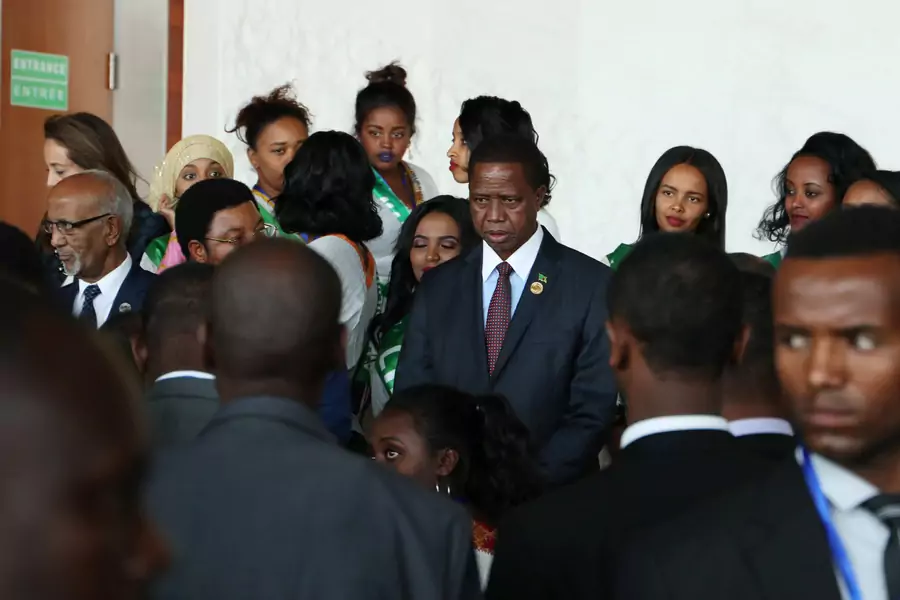Warning Signs Appear Ahead of Zambian Elections

The stage being set for next month’s Zambian elections looks worryingly like a case study in ongoing democratic decline. Polls slated for August 12 will elect the country’s next president and members of its National Assembly. They will feature a tight contest between incumbent Edgar Lungu and his ruling Patriotic Front versus opposition stalwart Hakainde Hichilema of the United Party for National Development.
The issues that should be animating the campaign are serious; Zambians have experienced worsening poverty and inequality in recent years, the country confronts staggering foreign debt, and high-profile scandals have contributed to perceptions of worsening corruption. A third wave of COVID-19 hit the weary country hard last month and continues to keep Zambian children out of school.
More on:
But the backdrop to this election cycle in Zambia is far from an environment conducive to debating solutions for the challenges Zambians face. The state has systematically and sometimes violently diminished political space and silenced independent media outlets, leading to an atmosphere of intimidation and fear. Rising tensions have prompted the Zambia Conference of Catholic Bishops to issue a statement expressing their concern about political violence. Moreover, technical preparations for the elections themselves have raised questions about bias and preparedness that can shake voters’ confidence in the process.
From a U.S. policy perspective, the situation in Zambia raises important questions about how the Biden Administration, which has made defending democratic values a fundamental pillar of its foreign policy, pursues its objectives. The United States is watching the lead-up to Zambian elections without having a confirmed ambassador in Lusaka; the last ambassador was recalled after his blunt criticisms of the Lungu government were deemed intolerable by his hosts. Yet Zambia continues to be a major recipient of U.S. foreign assistance totaling roughly $500 million annually. American diplomats on the ground are trying to be constructive partners in supporting a peaceful process that will reflect the will of the Zambian people, but if these efforts are fundamentally ineffective, simply continuing the bilateral status quo will send a signal about U.S. commitment and credibility that is sure to be noted in the region.
This publication is part of the Diamonstein-Spielvogel Project on the Future of Democracy.
More on:
 Online Store
Online Store